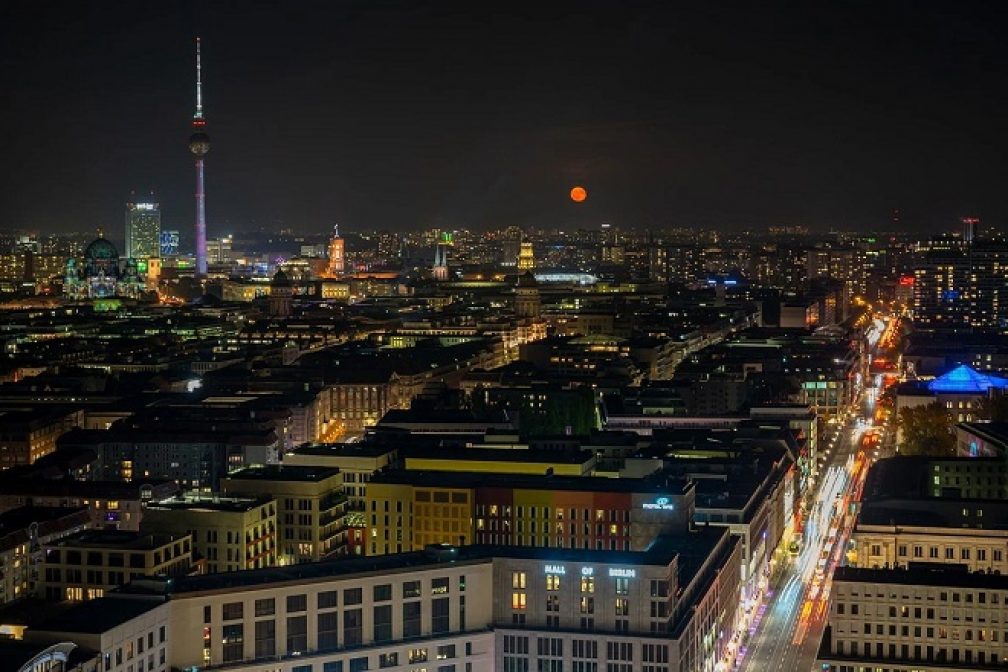Popular Berlin nightclubs face "extreme" threat from controversial motorway expansion, say Clubcommission
The planned 17th stage of the A100 motorway would impact iconic venues such as ://about blank, Club OST, and Wilde Renate
A number of popular Berlin nightclubs could face closure if a proposed new motorway extension were to be given the green light, as the Bundesautobahn 100 looks to run through nightlife areas in Mitte, Charlottenburg, Tempelhof and Neukölln.
The Bundesautobahn 100 (also known as the A100) is currently in its 16th stage of construction, which has been underway since 2013 and is due to cost around €700 million when finalised, and looks to increase its "ring" around the city.
The nearing 17th stage, which will cost the city an estimated further €800 million, could wipe out 21 cultural institutions if it were to run through Storkower Strasse in Ostkreuz, according to Berlin’s Clubcommission.
Local politicians have given no concrete statement over whether the development will go ahead, despite plans for the 17th stage having been proposed as far back as 1935, reportedly leaving local institutions in "limbo" — unable to secure guaranteed planning permission from the city and at risk of surging rent were the plans to be scrapped.
Read this next: Berghain bouncer Sven Marquardt to showcase photo exhibition in New York
The extension has become a contentious issue among both local and national politicians; the left-leaning Alliance90 (or "The Greens") and the SPD oppose the expansion, while centre and right-leaning parties such as the CDU, FDP and AfD are supportive of the 17th stage.
Nightlife venues that stand to be impacted if the plans were to go ahead are ://about blank, Club OST, Salon Zur Wilden Renate, ELSE, OXI, and newly opened venue Club M01 — while local bar Zuckerzauber, skatepark E-LOK, independent cinema Zukunft, and cocktail bar Krass Böser Wolf could also face closure.
“In total, there are about 21 cultural venues that are in the area of this continuous autobahn construction, which is extremely threatening,” Lutz Leichsenring of Berlin’s Clubcommission tells Mixmag.
“On the other hand, if they do decide not to build the autobahn, there is also a threat because the real estate value will rise and landlords might aim for more profitable real estate, such as residential or office buildings. So in any case, if they build it or not, we need to have a plan or vision for this area.”
Leichsenring explains that another property across the Spree River is also intertwined with the autobahn project, The 'Lohmühle', an area hosting venues including ÆDEN, Birgit, and Club der Visonäre, all owned by a landlord who looks to build residential real estate in the area, but those plans can’t yet go ahead due to a cement factory taking over the space. The factory, he says, provides construction materials to build the motorway.
Read this next: New sleeper train launching from London to Berlin in May
“What we do at Clubcommission is bring all the clubs into monthly meetings, we help to mobilise people, host panels, take part in protests, and try to create attention,” Leichsenring adds. “It’s helping to shape the club scene over the next ten years.”
Long-running nightclubs such as ://about blank and Wilde Renate, both open since 2010, face closure along with ELSE and Club M01, Renate’s sister clubs situated along the River Spree. These clubs are amongst Berlin’s €1.5 billion annual club tourism revenue.
“[These are] venues that sustain and serve different tastes and if that was lost, it’d be a real shame,” says writer Marina Manoukian, author of A Controversial Extension in Slow Travel Berlin, a long-read on the A100 motorway plans across the city.
“This isn’t to say that things can’t reopen — the bar Syndikat found a new home this year after being forcefully evicted — but the tradeoff of losing an entire area to a motorway just doesn’t seem worth it,” she tells Mixmag.
Syndikat, a dive bar formerly situated in Neukölln, was forcefully evicted by police in 2020 after it was bought by a multi-billion Euro property investor through a shell company, according *Exberliner***. The building remains empty today.
Read this next: Young people in Berlin to be given €50 card to go clubbing by city senate**** card to go clubbing by city senate
“The threat of the extension keeps all of these places in limbo and unable to make long-term investments,” Manoukian says.
Environmental fears are also rife with planned extensions. “The trifecta is probably the environmental impact, the destruction of cultural and subcultural venues ranging from schools to clubs, and the forced dislocation of residents,” Manoukian explains.
A Friedrichshain school for people with physical and learning disabilities could also be closed down if construction plans go ahead in the area.
Dance demonstrations took place on Tuesday (May 6) across Berlin to boycott the A100 motorway plans. ‘Who owns the city?’ also called for fair rent, and the right to preserve free space, RBB 24 reports.
"We assume that between 20 and 30 cultural institutions and clubs could or would have to close,” demonstration co-organiser Maximilian Schirmer told the publication. “[This is] money that we urgently need not only to maintain clubs but also for ailing schools or our hospitals - from our perspective, this is an irresponsible use of taxpayers' money.”
Gemma Ross is Mixmag's Assistant Editor, follow her on Twitter

